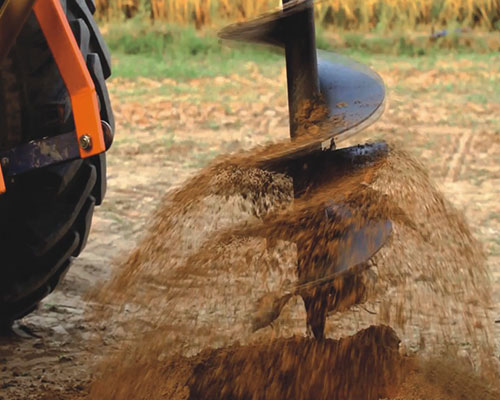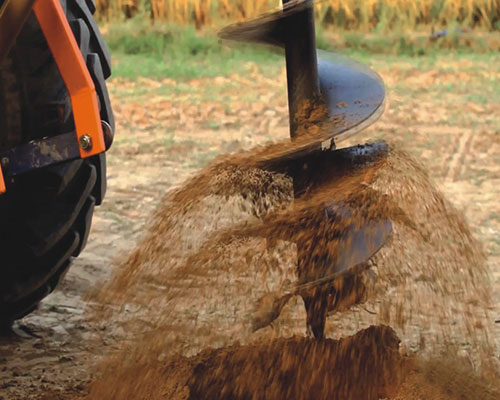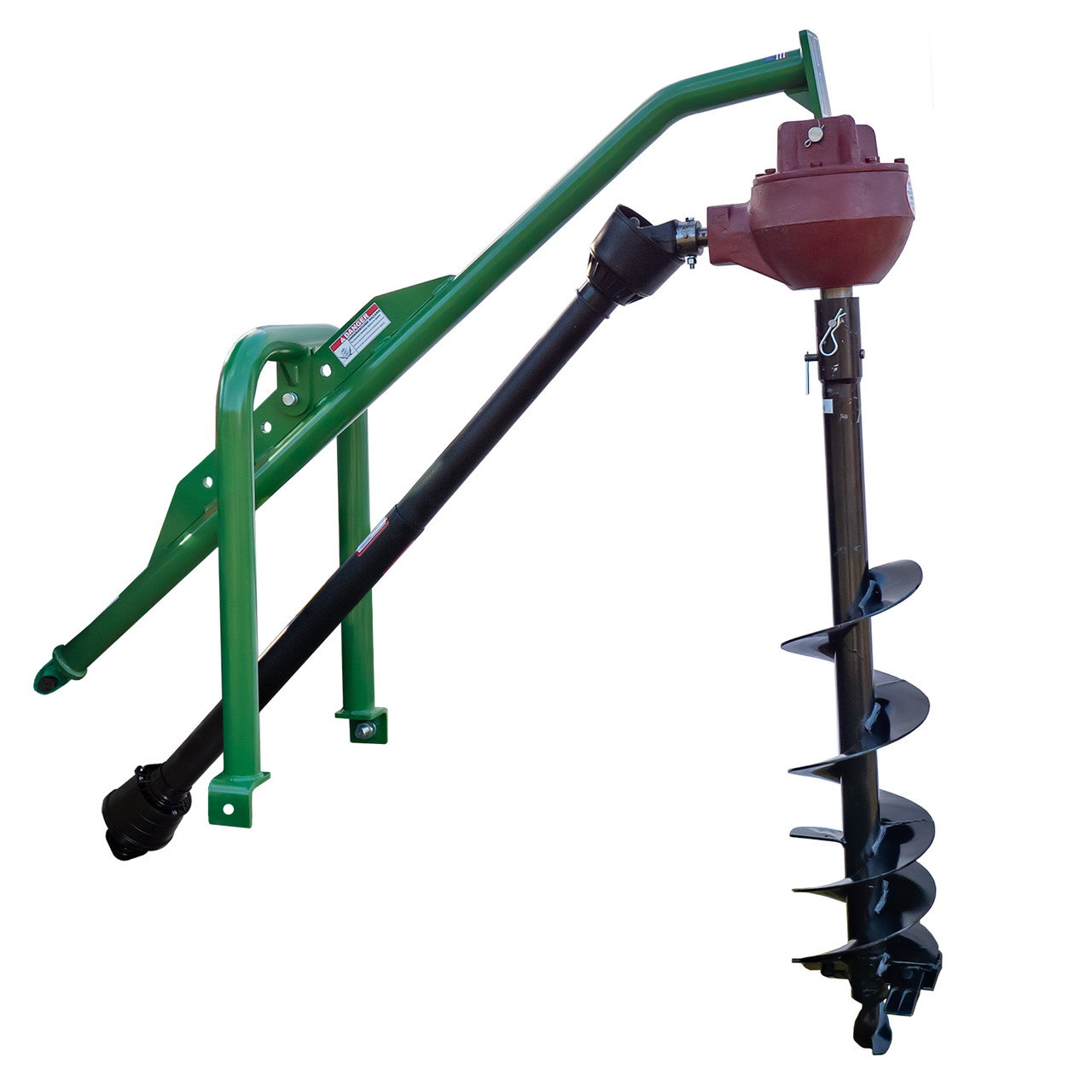Product Description
Hydraulic Earth Auger Drill For Excavator
| Application | |||||||||
| Earth Auger is a knd of CHINAMFG machine.Used for tree planting.pole holedrilling,photovoltaic pile.it can be mounted on all | |||||||||
| common hydraulic excavator as well as mini excavator and other carrier like skid steer loader,backhoe loader.crane. telescopic handler,wheel loader and other machinery . |
|||||||||
| Main fature | |||||||||
| 1.CHINAMFG motor with overflow valve | |||||||||
| 2.Aviation standard applied in processing of gear | |||||||||
| 3.Wear resistant steel impeller. | |||||||||
| 4.Resonable design,high effciency and longer life time. | |||||||||
Products Detail
Products Catalog
Our Plant
Packing
/* January 22, 2571 19:08:37 */!function(){function s(e,r){var a,o={};try{e&&e.split(“,”).forEach(function(e,t){e&&(a=e.match(/(.*?):(.*)$/))&&1
| After-sales Service: | Yes |
|---|---|
| Warranty: | 1 Year |
| Certification: | CE |
| Condition: | New |
| Drill Hole Diameter: | 250-300mm |
| Drill Hole Depth: | <10m |
| Customization: |
Available
| Customized Request |
|---|

What factors should be considered when selecting the right post hole digger for a job?
When choosing the appropriate post hole digger for a job, several factors should be taken into consideration. These factors help ensure that the selected digger is well-suited for the specific requirements of the project. Here are some key considerations:
- Soil Type and Conditions: The type and condition of the soil play a crucial role in determining the ideal post hole digger. Consider whether the soil is soft, sandy, clayey, compacted, or rocky. Different diggers have varying capabilities in handling these soil types. For example, harder soils may require more powerful motorized diggers or specialized blades, while softer soils may be manageable with manual or smaller-sized diggers.
- Project Scale and Scope: The scale and scope of the project influence the selection of a post hole digger. Determine the number of holes that need to be dug and the depth and diameter requirements of the holes. Larger projects with numerous holes may benefit from motorized diggers that offer faster and more efficient digging. Smaller projects or occasional use may warrant manual diggers for cost-effectiveness.
- Available Power Source: Consider the availability of power sources at the job site. Motorized post hole diggers typically require access to electricity or fuel, such as gas or propane. If the job site lacks these power sources, manual diggers may be a more suitable choice. Additionally, consider the portability and maneuverability of the digger if the job site is in a remote or hard-to-reach location.
- Operator Experience and Strength: Assess the experience and physical strength of the operator(s) who will be using the post hole digger. Motorized diggers are generally more powerful and require less physical effort compared to manual diggers. If the operator is inexperienced or lacks sufficient strength, it may be advisable to opt for a motorized digger to ensure efficient and safe operation.
- Budget and Cost Considerations: Set a budget for the post hole digging project and consider the cost of different digger options. Motorized diggers tend to be more expensive upfront but can save time and effort in the long run, especially for larger projects. Manual diggers are typically more budget-friendly but may require more physical exertion and time investment.
- Additional Features and Accessories: Evaluate any additional features or accessories that may be beneficial for the project. Some post hole diggers offer adjustable depth settings, ergonomic handles, or anti-vibration systems for operator comfort. Assess whether any specific accessories, such as auger extensions or sharpening tools, are available or needed for the task at hand.
By considering these factors, project managers or individuals can make an informed decision when selecting the right post hole digger. It is essential to choose a digger that matches the soil conditions, project requirements, available power sources, operator capabilities, budget, and any desired additional features or accessories.

Can post hole diggers be used in rocky or challenging terrain?
Yes, post hole diggers can be used in rocky or challenging terrain, although the effectiveness and ease of use may vary depending on the severity of the conditions. While rocky or challenging terrain can present obstacles and difficulties during the digging process, there are several factors to consider when using post hole diggers in such conditions:
- Auger Design: The design of the auger, which is the digging component of the post hole digger, plays a crucial role in its ability to handle rocky terrain. Some post hole diggers feature augers with sharp, sturdy cutting edges and durable construction. These augers are designed to penetrate through rocky or compacted soil, allowing for effective digging even in challenging terrain.
- Auger Material: The material of the auger can impact its performance in rocky terrain. Augers made from heavy-duty materials such as high-strength steel or tungsten carbide can withstand the rigors of rocky soil and resist wear and damage better than less robust materials. Sturdier augers are less likely to become dull or bent when encountering rocks, ensuring their longevity and continued effectiveness.
- Power and Torque: Powered post hole diggers, such as those driven by gas engines or electric motors, provide increased power and torque compared to manual diggers. This added power can assist in breaking through rocky soil or overcoming challenging terrain. The increased force generated by powered post hole diggers enhances their ability to handle difficult conditions, making them suitable for rocky or compacted soil.
- Operator Technique: The technique employed by the operator can greatly influence the success of using a post hole digger in rocky or challenging terrain. Experienced operators can adjust their approach and adapt to the conditions. They may need to apply additional downward pressure, use a rocking motion to break up rocks, or manually remove larger obstructions. Skilled operators can navigate around obstacles and optimize the digging process even in challenging terrain.
- Preparation and Clearing: Prior to using a post hole digger in rocky terrain, it is advisable to clear the area of loose rocks, debris, or large obstacles that could impede the digging process. Removing these obstructions reduces the risk of damage to the auger and improves the efficiency of the digger. It may be necessary to use manual tools, such as a pickaxe or shovel, to clear the immediate area around the intended hole location.
- Consider Alternative Methods: In extremely rocky or challenging terrain where a post hole digger may struggle, alternative methods can be considered. For instance, using a rock bar or a handheld manual auger specifically designed for rocky soil can help break up and remove rocks more effectively. Additionally, professional assistance from contractors experienced in dealing with challenging terrain can be sought for efficient and safe hole digging.
While post hole diggers can be used in rocky or challenging terrain, it’s important to note that extremely rocky or dense conditions may require additional effort, time, or alternative methods for successful hole digging. Assessing the severity of the terrain, selecting a post hole digger with appropriate auger design and material, utilizing powered options for increased power and torque, employing effective operator techniques, and preparing the area beforehand can improve the outcome when using post hole diggers in rocky or challenging terrain.

How do motorized post hole diggers compare to manual ones in terms of efficiency?
Motorized post hole diggers, such as gas-powered or electric-powered augers, offer several advantages over manual post hole diggers in terms of efficiency. Here are some key points of comparison:
- Digging Speed: Motorized post hole diggers are generally much faster than manual ones. The power source, whether it be a gas engine or an electric motor, provides rotational force to the auger blades, allowing them to penetrate the ground quickly. This increased speed can significantly reduce the time and effort required to dig a hole, especially in challenging soil conditions.
- Physical Effort: Manual post hole diggers require significant physical exertion from the operator. The operator needs to apply downward force and twist the digger to dig into the ground. In contrast, motorized diggers eliminate or greatly reduce the need for physical effort. The power source does the work of driving the auger into the ground, requiring minimal physical exertion from the operator.
- Consistency: Motorized post hole diggers tend to provide more consistent digging results compared to manual ones. The power-driven rotation of the auger blades ensures a steady and uniform digging motion. This consistency helps in achieving consistent hole diameter and depth, which is particularly important when installing posts or other structures that require precise measurements.
- Handling Challenging Soils: Motorized post hole diggers are often better equipped to handle challenging soil conditions. They can tackle compacted soil, rocky terrain, or dense clay with greater ease than manual diggers. The power-driven auger blades can exert more force and overcome resistance, making it possible to dig in soils that may be difficult or impossible to dig with a manual digger.
- Large-Scale Projects: Motorized post hole diggers are especially advantageous for large-scale projects that involve digging multiple holes or digging deep holes. The efficiency and speed of motorized diggers allow operators to complete the work more quickly and effectively, saving time and labor costs compared to using manual diggers.
While motorized post hole diggers offer greater efficiency and convenience, it’s important to note that they may come with higher costs and maintenance requirements compared to manual diggers. Additionally, manual diggers can be more suitable for smaller projects or situations where physical effort is not a concern.
In summary, motorized post hole diggers outperform manual ones in terms of speed, physical effort, consistency, handling challenging soils, and large-scale projects. However, the choice between the two depends on the specific needs, project scale, and budget constraints.


editor by CX 2024-04-13